BYD Han vs Hyundai Kona - Differences and prices compared
Compare performance (517 HP vs 218 HP), boot space and price (59200 £ vs 23100 £ ) at a glance. Find out which car is the better choice for you – BYD Han or Hyundai Kona?
Costs and Efficiency:
When it comes to price and running costs, the biggest differences usually appear. This is often where you see which car fits your budget better in the long run.
Hyundai Kona has a significantly advantage in terms of price – it starts at 23100 £ , while the BYD Han costs 59200 £ . That’s a price difference of around 36103 £.
In terms of energy consumption, the advantage goes to the Hyundai Kona: with 14.60 kWh per 100 km, it’s distinct more efficient than the BYD Han with 18.50 kWh. That’s a difference of about 3.90 kWh.
As for electric range, the BYD Han performs minimal better – achieving up to 521 km, about 7 km more than the Hyundai Kona.
Engine and Performance:
Power, torque and acceleration say a lot about how a car feels on the road. This is where you see which model delivers more driving dynamics.
When it comes to engine power, the BYD Han has a convincingly edge – offering 517 HP compared to 218 HP. That’s roughly 299 HP more horsepower.
In acceleration from 0 to 100 km/h, the BYD Han is decisively quicker – completing the sprint in 3.90 s, while the Hyundai Kona takes 7.80 s. That’s about 3.90 s faster.
In terms of top speed, the Hyundai Kona performs slightly better – reaching 210 km/h, while the BYD Han tops out at 180 km/h. The difference is around 30 km/h.
There’s also a difference in torque: BYD Han pulls significantly stronger with 700 Nm compared to 265 Nm. That’s about 435 Nm difference.
Space and Everyday Use:
Cabin size, boot volume and payload all play a role in everyday practicality. Here, comfort and flexibility make the difference.
Both vehicles offer seating for 5 people.
In curb weight, Hyundai Kona is clearly lighter – 1370 kg compared to 2325 kg. The difference is around 955 kg.
In terms of boot space, the Hyundai Kona offers slightly more room – 466 L compared to 410 L. That’s a difference of about 56 L.
When it comes to payload, Hyundai Kona evident takes the win – 490 kg compared to 335 kg. That’s a difference of about 155 kg.
Who wins the race in the data check?
The Hyundai Kona holds a narrow overall lead in the objective data comparison.
This result only shows which model scores more points on paper – not which of the two cars feels right for you.
Costs and Consumption
View detailed analysis
Engine and Performance
View detailed analysis
Dimensions and Body
View detailed analysis

Hyundai Kona
BYD Han
The BYD Han is a sleek, cinematic fastback saloon that pairs dramatic styling with a surprisingly plush cabin and a genuinely high-tech feel. It undercuts established rivals on price while delivering composed handling, generous equipment and long-legged electric confidence — a car that will make badge-conscious buyers sit up and take notice.
details
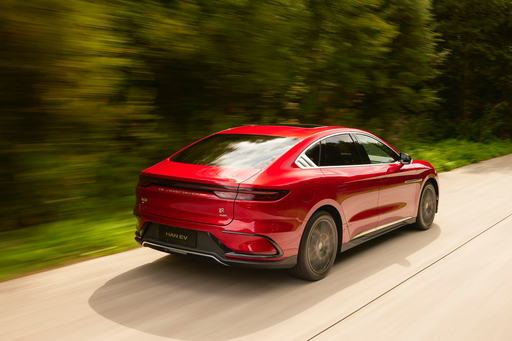
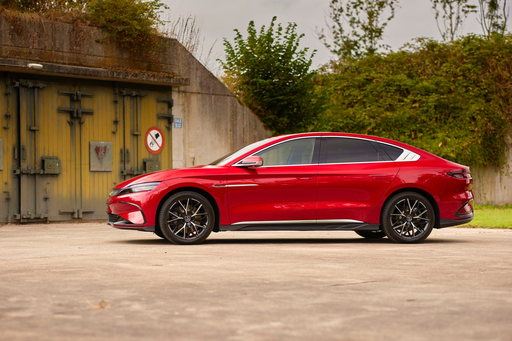
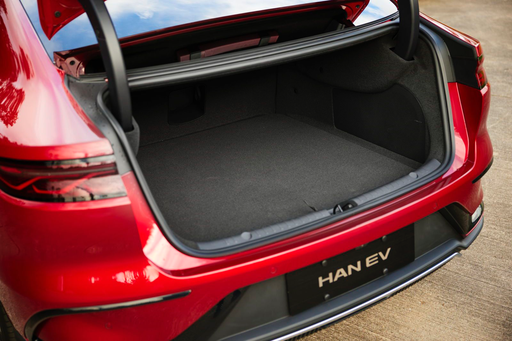
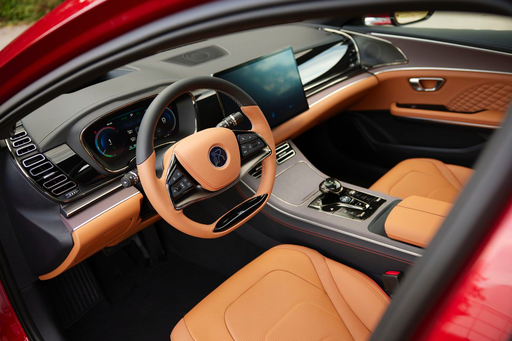
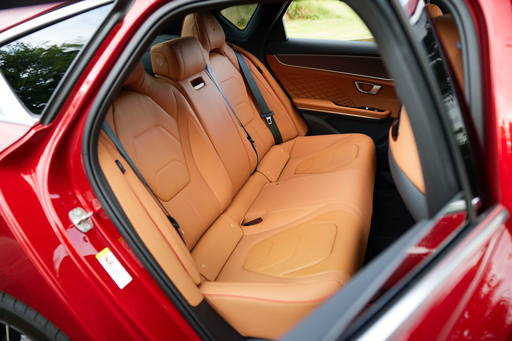
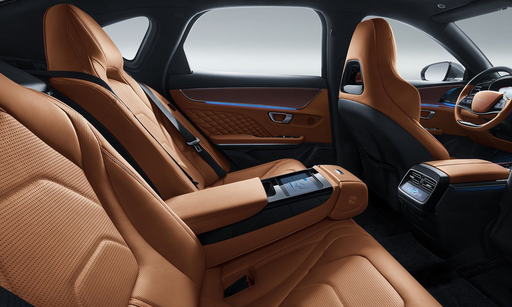
Hyundai Kona
The Hyundai Kona wears its personality on the outside with bold styling and sprightly handling that turns city driving into something a little more fun than a commute. It blends practical space, modern tech and sensible running costs into a compact, stylish package — a smart pick if you want flair without paying luxury prices.
details



Costs and Consumption |
|
|---|---|
|
Price
59200 - 62200 £
|
Price
23100 - 41600 £
|
|
Consumption L/100km
-
|
Consumption L/100km
4.6 - 7 L
|
|
Consumption kWh/100km
18.50 kWh
|
Consumption kWh/100km
14.6 - 16.8 kWh
|
|
Electric Range
521 km
|
Electric Range
377 - 514 km
|
|
Battery Capacity
-
|
Battery Capacity
1.3 - 65.4 kWh
|
|
co2
0 g/km
|
co2
0 - 163 g/km
|
|
Fuel tank capacity
-
|
Fuel tank capacity
38 - 47 L
|
Dimensions and Body |
|
|---|---|
|
Body Type
Sedan
|
Body Type
SUV
|
|
Seats
5
|
Seats
5
|
|
Doors
4
|
Doors
5
|
|
Curb weight
2325 kg
|
Curb weight
1370 - 1773 kg
|
|
Trunk capacity
410 L
|
Trunk capacity
466 L
|
|
Length
4995 mm
|
Length
4350 - 4385 mm
|
|
Width
1910 mm
|
Width
1825 mm
|
|
Height
1495 mm
|
Height
1580 - 1585 mm
|
|
Max trunk capacity
-
|
Max trunk capacity
1300 L
|
|
Payload
335 kg
|
Payload
420 - 490 kg
|
Engine and Performance |
|
|---|---|
|
Engine Type
Electric
|
Engine Type
Electric, Petrol, Full Hybrid
|
|
Transmission
Automatic
|
Transmission
Automatic, Manuel
|
|
Transmission Detail
-
|
Transmission Detail
Reduction Gearbox, Manual Gearbox, Dual-Clutch Automatic
|
|
Drive Type
All-Wheel Drive
|
Drive Type
Front-Wheel Drive, All-Wheel Drive
|
|
Power HP
517 HP
|
Power HP
115 - 218 HP
|
|
Acceleration 0-100km/h
3.90 s
|
Acceleration 0-100km/h
7.8 - 11.9 s
|
|
Max Speed
180 km/h
|
Max Speed
162 - 210 km/h
|
|
Torque
700 Nm
|
Torque
200 - 265 Nm
|
|
Number of Cylinders
-
|
Number of Cylinders
3 - 4
|
|
Power kW
380 kW
|
Power kW
85 - 160 kW
|
|
Engine capacity
-
|
Engine capacity
998 - 1598 cm3
|
General |
|
|---|---|
|
Model Year
2023
|
Model Year
2024 - 2025
|
|
CO2 Efficiency Class
A
|
CO2 Efficiency Class
A, D, C, E, F
|
|
Brand
BYD
|
Brand
Hyundai
|
What drivetrain options does the BYD Han have?
Available configurations include All-Wheel Drive.
